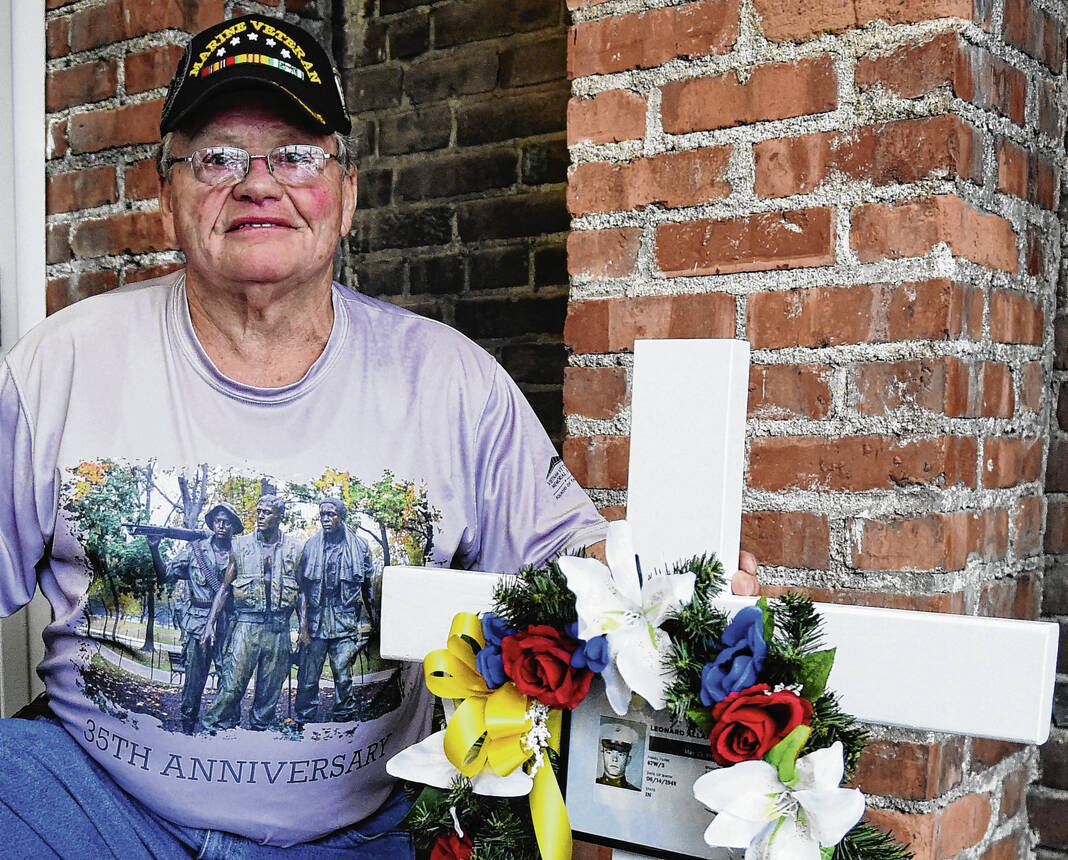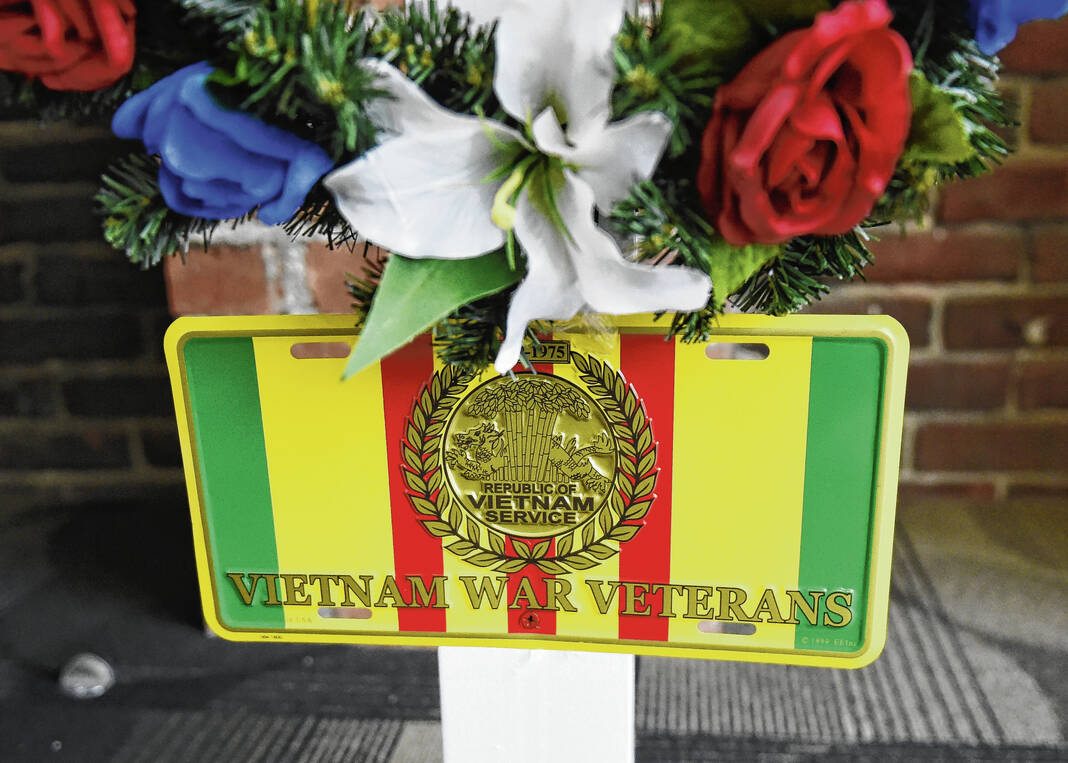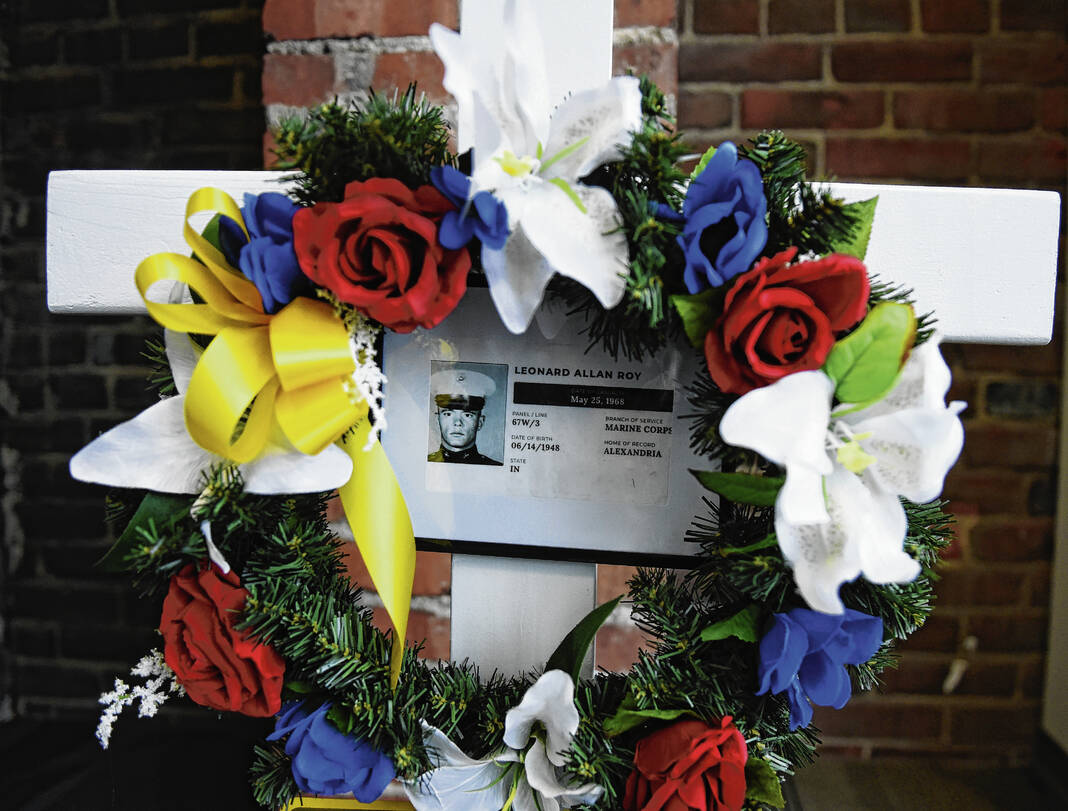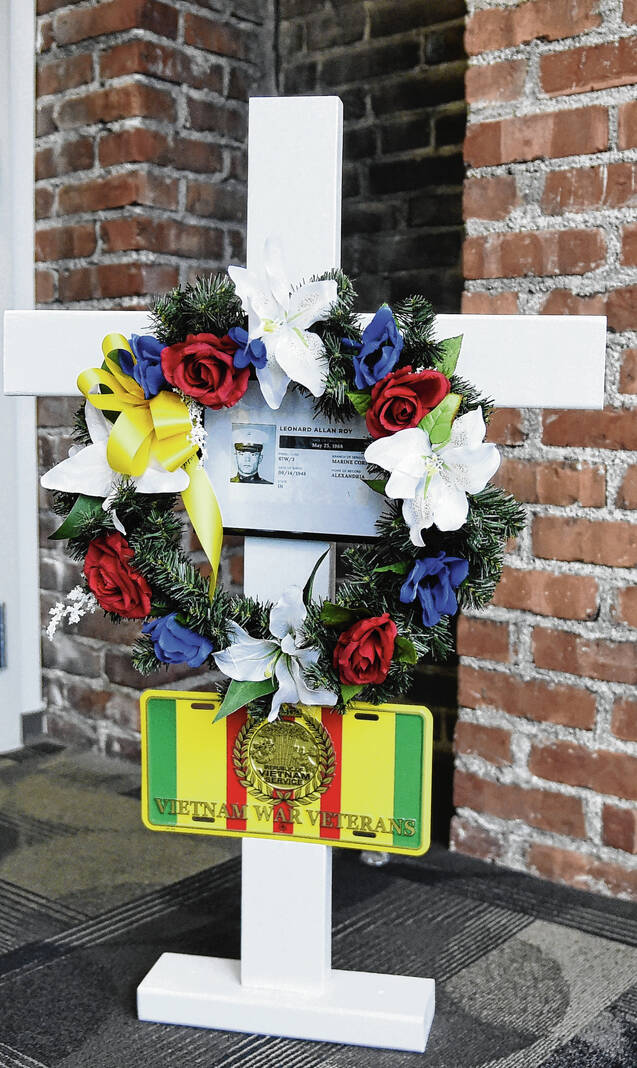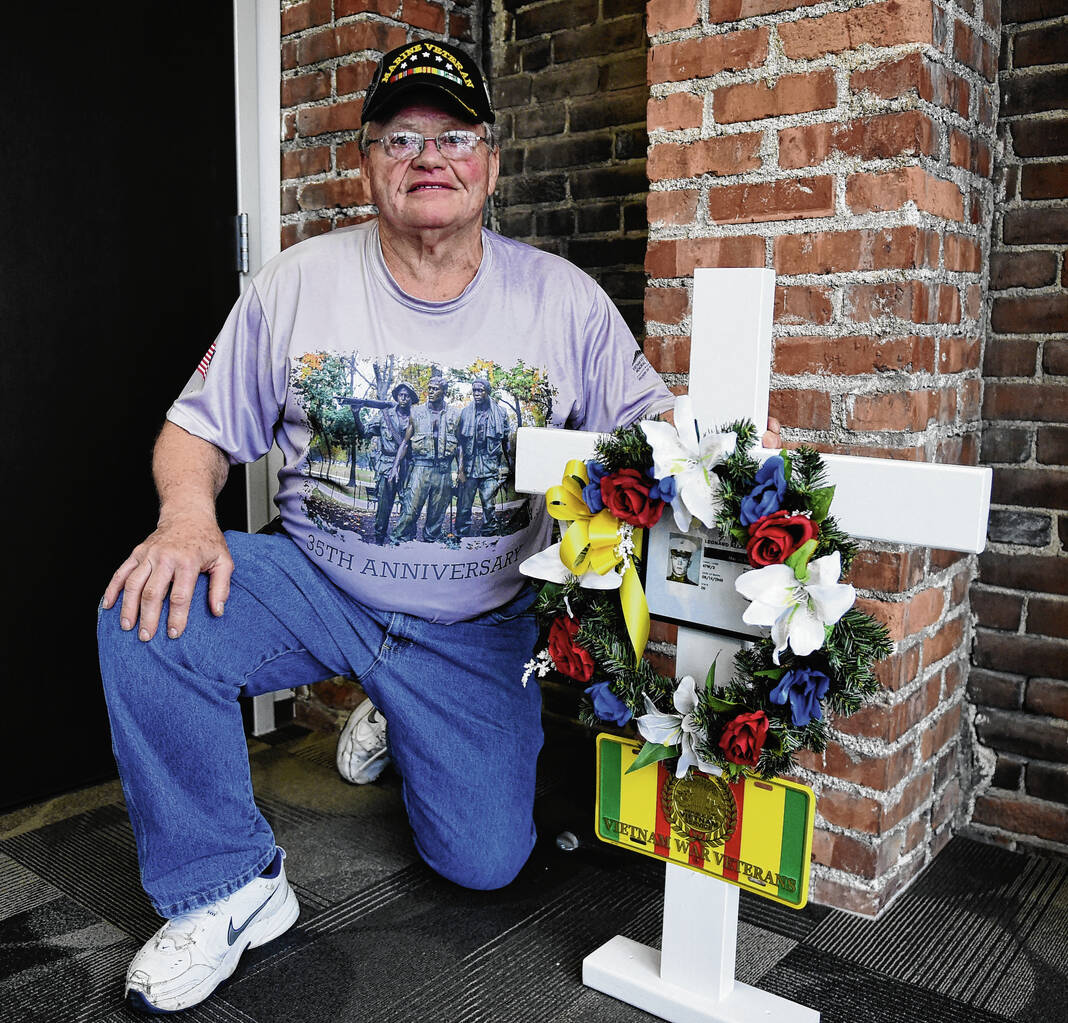The stark white wooden cross stood about 3 ½ feet tall, ringed with a wreath of honor.
At the center, a photograph, name and description told of a life lost to war. Near the base of the cross, White River Township resident Dennis Giddens hung a placard decorated in the red, yellow and green of the Vietnam service ribbon.
“It was a burden of the heart to do this,” he said. “I don’t want these fellas to be forgotten.”
For the past year and a half, Giddens has worked on a deeply personal project to honor Vietnam veterans who died during the war. The 75-year-old served for four years in the U.S. Marine Corps, including 20 months in Vietnam working on helicopters. The horrors of the war remain with him.
But more troubling is his worry that the men who died in the war – his friends and fellow soldiers – are slowly being forgotten by time.
Giddens plans to place 41 handmade white crosses at the gravesites of Vietnam veterans in his native Madison County. His hope is that his efforts might inspire people in other communities to do something similar.
“Maybe it’ll spark someone to do what I’ve started doing, here for the individuals in Johnson County,” he said.
For 30 years after his service, Giddens never wore anything identifying himself as a Vietnam War veteran. He didn’t talk about his service, mostly because it was unpopular but also to try and forget the traumas he had experienced. He didn’t join veterans organizations. He compartmentalized it, pushing it away and not thinking about the war.
That changed in 2002. After what he called a “dark period” emotionally, he came out of it and decided to acknowledge his service. He took pride in his service. He bought a hat identifying himself as a veteran of the Marines, underscored by Vietnam service ribbons.
He wears it to make people consider their own feelings about the war.
“It’s not to get recognition for me. It’s to get people to think about the Vietnam War, veterans, and that we lost a lot of guys,” he said. “I know that was 50 years ago, but my thought now is a lot of these guys have been forgotten.”
Growing up in Anderson, Giddens had a family tradition of military service. His great-grandfather had fought in World War I. Both his father and his stepfather had fought in World War II.
As the Vietnam War escalated, and more young men were drafted to serve, more and more people who Giddens went to school with or knew became part of the war effort.
His family was working-class, and knowing that he’d likely be drafted into service after graduating from high school, Giddens and a few of his friends all enlisted together.
“I didn’t really want to go, but I wasn’t going to avoid it,” he said.
Giddens joined the Marine Corps in 1967 and served until 1971. He was shipped to Vietnam in 1968, and stayed for 20 months — seven more months than the typical tour of duty.
“My reason for doing that was to keep my brother from coming over there. I felt that (since I) had already been there, I was experienced, I knew how to keep myself safe, safer than he could,” he said.
As part of a helicopter unit, Giddens was assigned work such as supporting resupply efforts to the forces on the ground and transporting troops.
His most harrowing mission was one night, dropping flares off around the jungle in an old transport plane the unit had repurposed for the job. All of the sudden, the bright glare of a missile rose from the ground and headed toward them. Giddens thought they were done.
“It’s just getting closer and closer and closer,” Giddens said. “Luckily, at the time that happened, we had a couple of jet fighters escorting in the area, and they were able to come in and swoop by us, and the heat of their exhaust drew it towards them. Then they could outrun it.”
Instances like that over the course of his 20 months left a lasting impact on him.
“There are things that will stick in my mind the rest of my life, just like it was yesterday. Not every day was horrible, don’t get me wrong. There was just days that were,” he said.
Compounding the horrors of war was the reception that Giddens and other Vietnam veterans received when returning to the United States. The war had divided the nation, with protests against the country’s involvement and the vilification of those who went to fight in it.
Giddens enrolled in Indiana University days after completing his service, eager to move onto the next part of his life. But his military service drew the ire of many of his fellow students.
“When I was down there, it was real difficult, there was a lot of protesting of the war. People were kind of hostile,” he said. “They were protesting what you did, and it kind of made you uneasy.”
Only in the past 20 years has Giddens changed his thinking on serving. He made it a priority to honor those other veterans who didn’t make it home.
In Madison County, Giddens was able to uncover 41 men who had died in the Vietnam War. He personally knew about a dozen of them, and some of them were close friends.
“I took it upon myself to start going to their gravesites on Memorial Day, acknowledging them in some way,” he said.
Giddens would put coins on their gravestones — a military tradition that indicates someone came by to visit the burial site. Soon, he started bringing wreaths and photographs of them.
He could see, over the years, that many of those veterans had no one else visiting.
“Over time, it became apparent that their families are now gone, so they are forgotten. Once you lose that generation, there’s no one else,” he said. “I’ve taken it upon myself to start looking them up.”
Giddens resolved to make highly visible memorials to honor these veterans.
Using the woodworking shop at Mt. Pleasant Christian Church, where he volunteers, Giddens constructed and painted white wooden crosses.
He spent hours researching the names and burial locations of the 41 Vietnam veterans killed in the war who are buried in Madison County. He located their gravesites in eight different cemeteries, often spending hours walking the grounds of city burial grounds and small country cemeteries to find the exact locations.
He worked with the Vietnam Veterans Memorial Wall Foundation to acquire photographs of all of the men, which have been placed in protective sleeves and placed on the wooden crosses. McNamara Florist and Greenwood UPS provided fabric flowers and other supplies so Giddens could hand-make wreaths for his memorials.
The plan is to set the crosses up at the veterans’ gravesites before Memorial Day weekend, then take them down following the holidays. He plans to keep doing it as long as he can, though he also hopes to find organizations who would carry on the tradition.
He thinks that after all of these years, the vitriol toward Vietnam veterans has mostly faded away. People see him with his hat or shirts, and thank him for his service.
The next step is ensuring that those who died in war get the respect they deserve.
“I want them to be remembered for what they did,” Giddens said.


